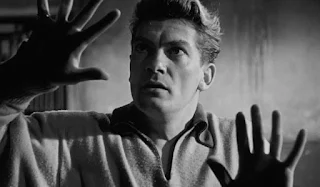We need to discuss the social function of rich people. Besides the marginal entertainment and sports figures, I see two functions: administration and investment.
The social cost of administration has gone up considerably since corporations changed their nature, breaking the old post war pact between capital and labor. I am going to put to one side the growth of LBOs and private equity firms that developed new forms of looting corporations in the eighties, and concentrate mainly on the radical elevation in compensation for the highest levels of management, which occurred mostly in the 80s. They were abetted by neoclassical economists and the newly expanded power of business schools. Harvard Business school in particular boasted a team of scholars who cheered on the insane compensations of the new class of CEO with arguments having to do with “aligning” the interests of the organization and the management: the famous principle-agent problem, the solution to which was to massively bribe the leader. The rationale for this was paper thin – one had only to compare the compensation for Japanese upper management in the seventies to Americans in the eighties to see that corporate productivity and return on investment did not depend on giving the CEOs carte blanche and stock options out the wazoo.
One must keep in mind that historically, the lowering of the marginal tax rate as a result of Reagan’s first two years in office did precede the explosion in upper management compensation. The justification trailed a bit afterwards, as the nineties arrived and Clinton Dems showed they were ultra-satisfied with rich upper management types – donors! And after you get out of office, nothing is sweEter than being showered with millions by the people you supported while you were in office. So as the CEO class became more and more entitled, there was considerable trickle down to the political class, which became abettors and scroungers at the till.
Picketty targets the income derived from administration as as a major driver of income and wealth inequality. For a quick rundown of this, I’d recommend Mike Konczal’s excellent essay in the Boston Review in 2014.
Even so, if the exorbitant sums paid to administrators had resulted in a great increase in the pay to the median worker, it might be said that, on some level, it works. But this hasn’t happened. The very wealthy have seen their income growing by about 6 percent per year since the seventies – in fact, the starting point seems to be 1973. The middle has grown, if at all – it flatlined during most of the 00s – by one percent per year. The workers who comprise the lower eighty percent have seen their wealth, in Piketty’s phrase, “collapse”. This reverses the trends from 1945 to 1973, when it was just the opposite, with the wealthiest having less percentage gains than the middle.
The left argument here is we have no reason to pay these exorbitant costs for administration. There’s no evidence that these costs have been worth it to the average worker in developed economies. On the contrary, they’ve decisively shifted power away from workers, and power means the power to make their lives more comfortable, and to make their loved ones lives more comfortable, on down the generations, ad gloria mundi.
Along with administration, the wealthy play a positive social role by making investments. The argument here is, it is true, circular – we need to the wealthy to invest, and that investment makes them richer, making us need them more – but it isn’t bogus. Investment means that credit is available to the masses; the making accessible and available credit to workers, beyond the mingy terms of the company store, was one of the great capitalist victories of the twentieth century. The Soviet Union died for many reasons, but one of the unheralded ones was the persistent refusal of the Soviet planners to create an internal source of credit. This devastated the economy that recovered very well from World War II, but that, by the sixties, was in desperate need of credit to renovate and take advantage of the efficiencies offered by technological progress.
Read the rest at Willettsmag









